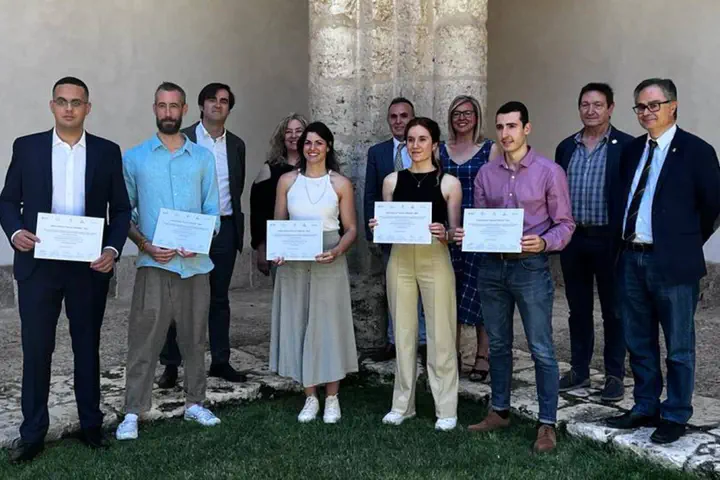Sergio Cavero winner of the Thesis in 3 Minutes Final in Engineering and Architecture area.

Sergio Cavero winner of the Thesis in 3 Minutes Final in Engineering and Architecture area in which participated doctoral students from the 5 public universities of Madrid.
Last Friday was held the final of the interuniversity contest ‘Thesis in 3 minutes’. This phase, which took place at the University of Alcalá, resulted in the candidates presented by the URJC winning three of the five categories of the contest.
Sergio Cavero Díaz won in the category of Engineering and Architecture. For this, he gave a 3-minute presentation on his doctoral thesis entitled ‘Heuristic algorithms for graph embedding problems in circular arrangements’.
From the International Doctoral School, its director, Pilar Abad, has shown her satisfaction, “we are very happy to obtain this result in a popularization contest. This means that the research done by our students reaches society, which is fundamental as a school and as a university”.
The jury highlighted the high level of the competition in the 2022 edition, in which doctoral students from the 5 public universities of Madrid participated. This was evidenced by the fact that the judges came out with the final decision 25 minutes after the stipulated time, due to the tightness of the competition.
The contest ‘Thesis in 3 minutes’ 2022 has shown the high level and social importance of the research carried out at the Universidad Rey Juan Carlos.

